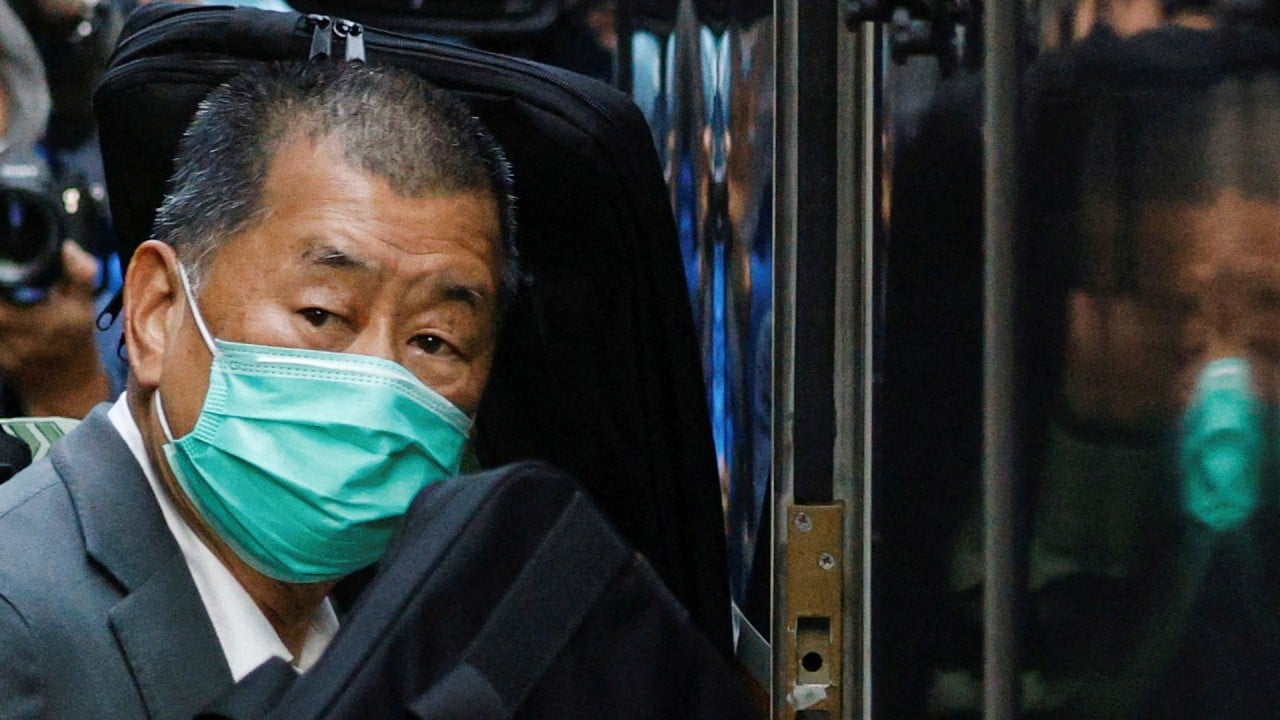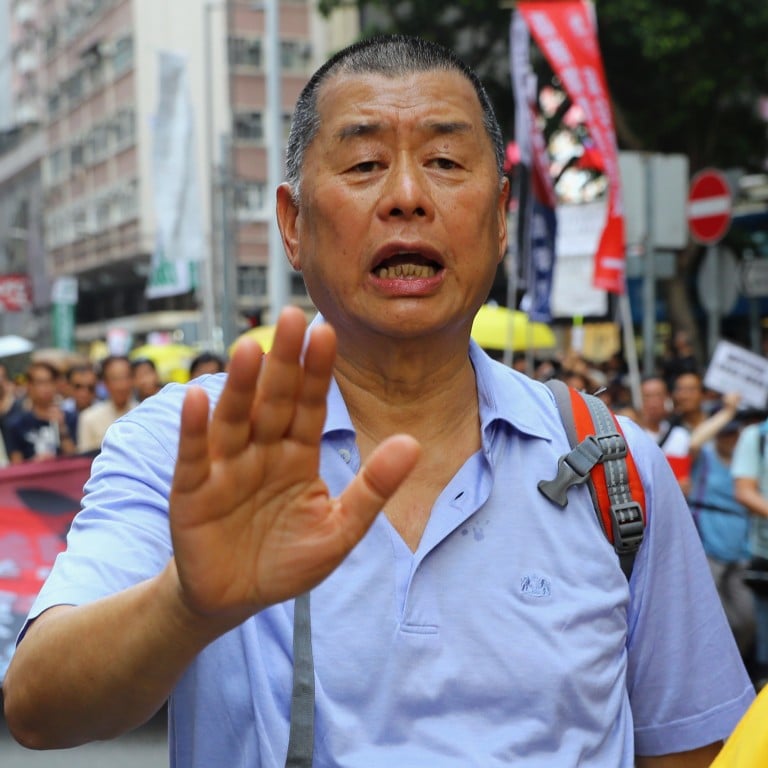
The Jimmy Lai trial so far: daily updates on his high-profile national security case in Hong Kong
- Lai faces three conspiracy charges related to sedition and collusion with foreign forces for allegedly calling for international sanctions against authorities and inciting public hatred
- With the trial expected to last for about 80 days, the Post is summarising each day of proceedings and breaking down the most important legal arguments
The two counts of collusion fall under the national security law, while the other charge is covered by colonial-era sedition legislation.
With the trial expected to last about 80 days, the Post is summarising each day of proceedings and breaking down the most important legal arguments.
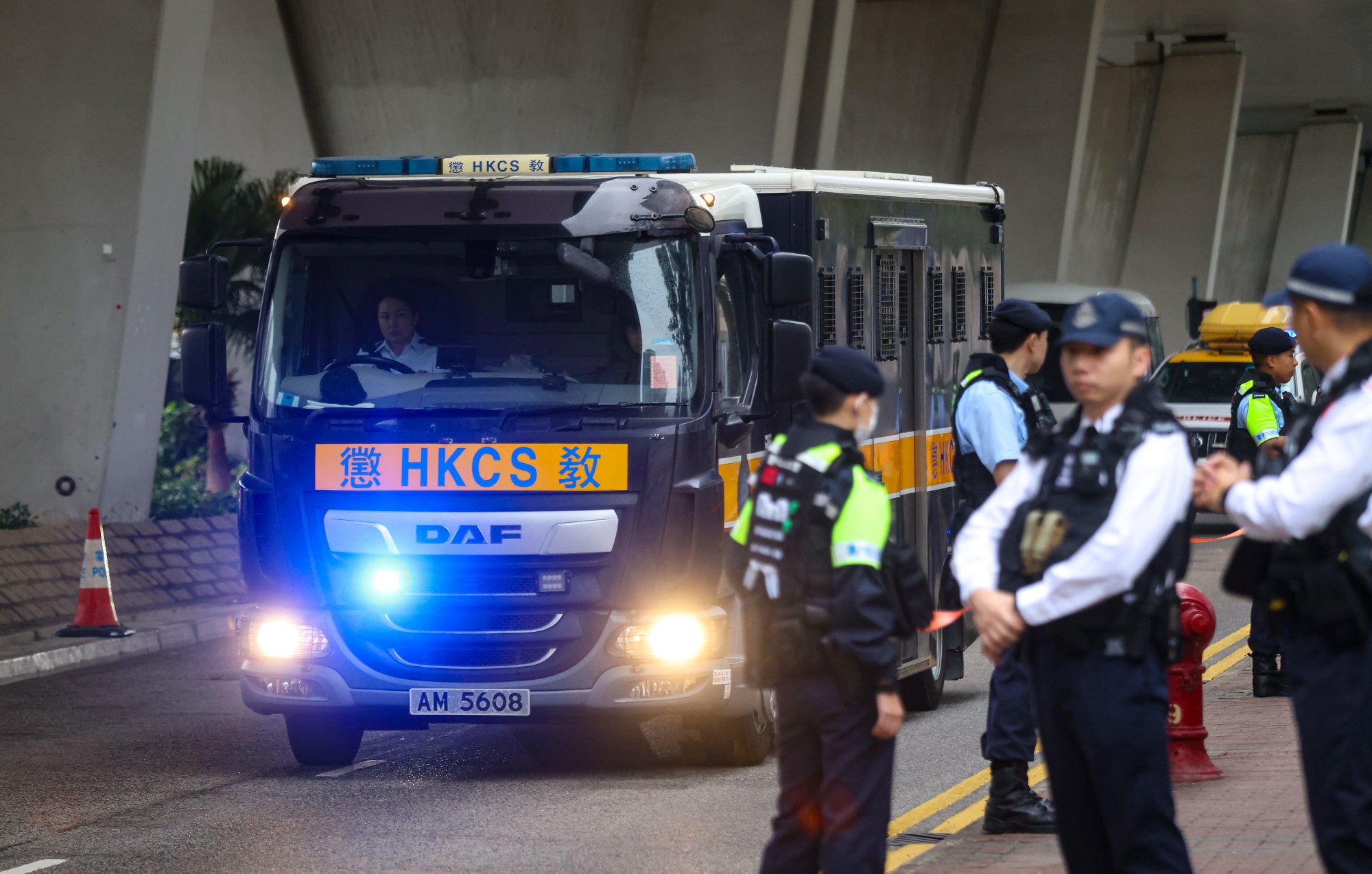
Day 67: April 26
Paralegal Wayland Chan Tsz-wah admitted fabricating evidence during a 2020 interview with police in a bid to exonerate himself and an activist linked to a global lobbying group, but rejected the defence’s notions that Lai had never expressed an intent to unite all opposition forces and push for China’s “implosion”.
Day 66: April 25
Key prosecution witness Wayland Chan Tsz-wah admitted lying and providing false information to law enforcement upon being cross-examined by Lai’s defence counsel over the veracity of claims he made in a 2020 police interview after his arrest.
Day 65: April 24
Paralegal Wayland Chan Tsz-wah said international lobbying became difficult after Jimmy Lai’s arrest as businessmen and politicians in the West started severing ties with him, but the tycoon felt it could attract international attention and boost the sales of his now-defunct Apple Daily tabloid.
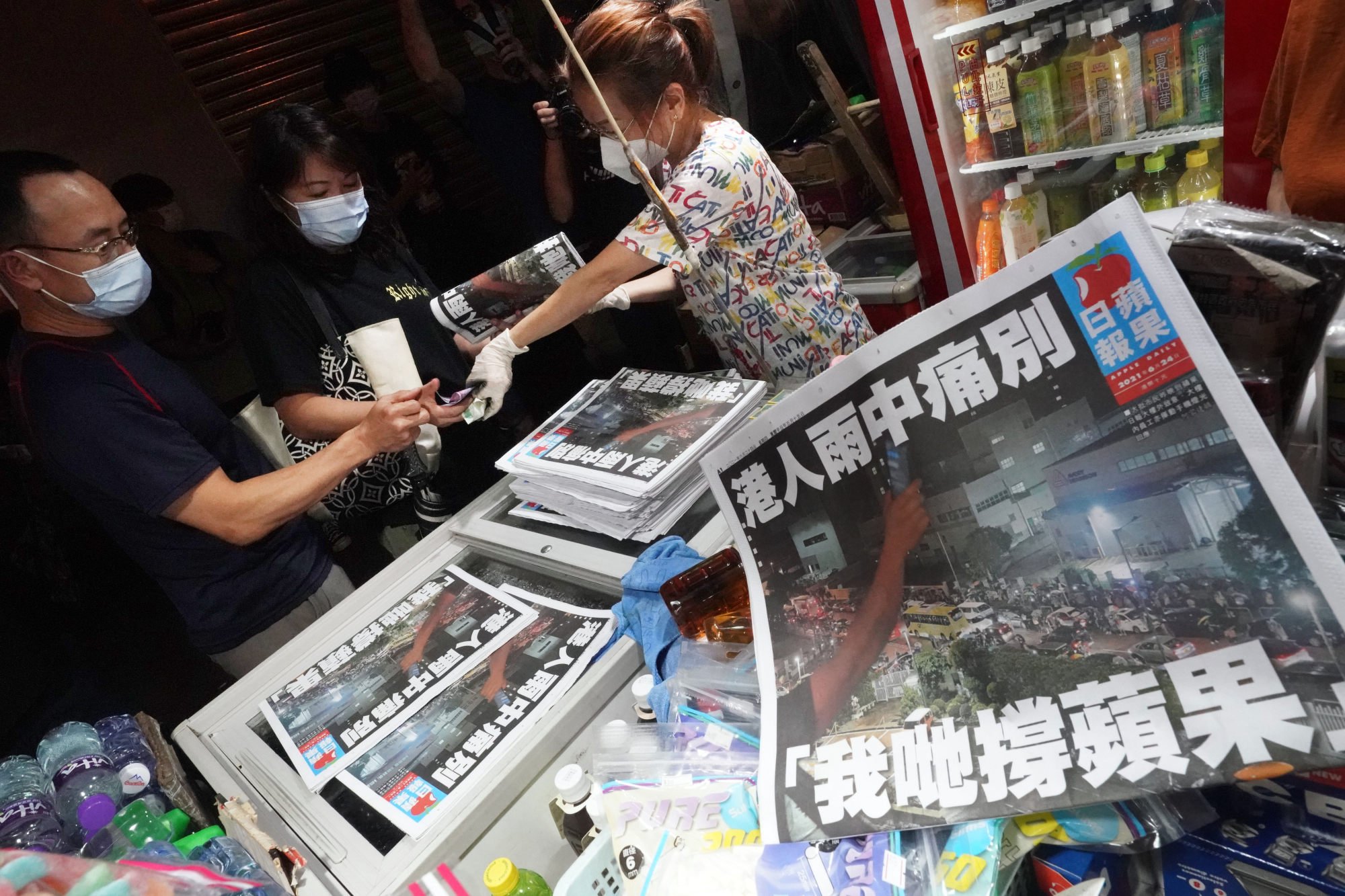
Day 64: April 23
Jimmy Lai was convinced he would not be prosecuted under the national security law – which he believed was “all bark and no bite” – and insisted that efforts to attract international sanctions against Hong Kong and mainland China should continue even after the legislation took effect, the trial heard.
Day 63: April 19
Paralegal Wayland Chan Tsz-wah said two activists linked to a global campaign group agreed to follow Jimmy Lai’s instructions after the tycoon shared with them his four-step plan to trigger China’s “implosion” through international lobbying, paving the way for the introduction of US-style democracy.
Day 62: April 17
Lai called for an unofficial primary election in 2020 and planned to back localist hopefuls in a bid to boost the opposition camp’s chances of securing a controlling majority in the Legislative Council, prosecution witness Wayland Chan Tsz-wah told the trial.

Day 61: April 16
Jimmy Lai sought to assume control over radical protesters in the 2019 social unrest knowing the United States would only continue to support the Hong Kong demonstrations if there was an end to violence, key prosecution witness Wayland Chan Tsz-wah told the court.
Day 60: April 15
Lai’s plan to “purify” the 2019 social unrest by convincing radical protesters to exercise restraint stemmed from a fear that continued chaos and violence would discourage the United States from offering support, the trial heard.
Day 59: April 12
Paralegal Wayland Chan Tsz-wah explained his links to Lai and his personal assistant Mark Simon. Chan said he had approached the tycoon through veteran democrat Martin Lee Chu-ming to get financial support for a global advertising campaign against the Hong Kong government in June 2019.
Day 58: April 11
Detained activist Andy Li Yu-hin revealed he was told to escape to Taiwan and then to the United Kingdom after he was arrested for suspected collusion with foreign forces in August 2020.
He also denied receiving instruction from Lai or his associates concerning his work with two political groups, which prosecutors said had called for sanctions against Hong Kong and mainland China.
Day 57: April 10
Key prosecution witness Andy Li Yu-hin said he did not receive a penny from Lai or make direct contact with him when he devoted himself to a global lobbying effort to trigger international action against Hong Kong and mainland China in 2019 and 2020.
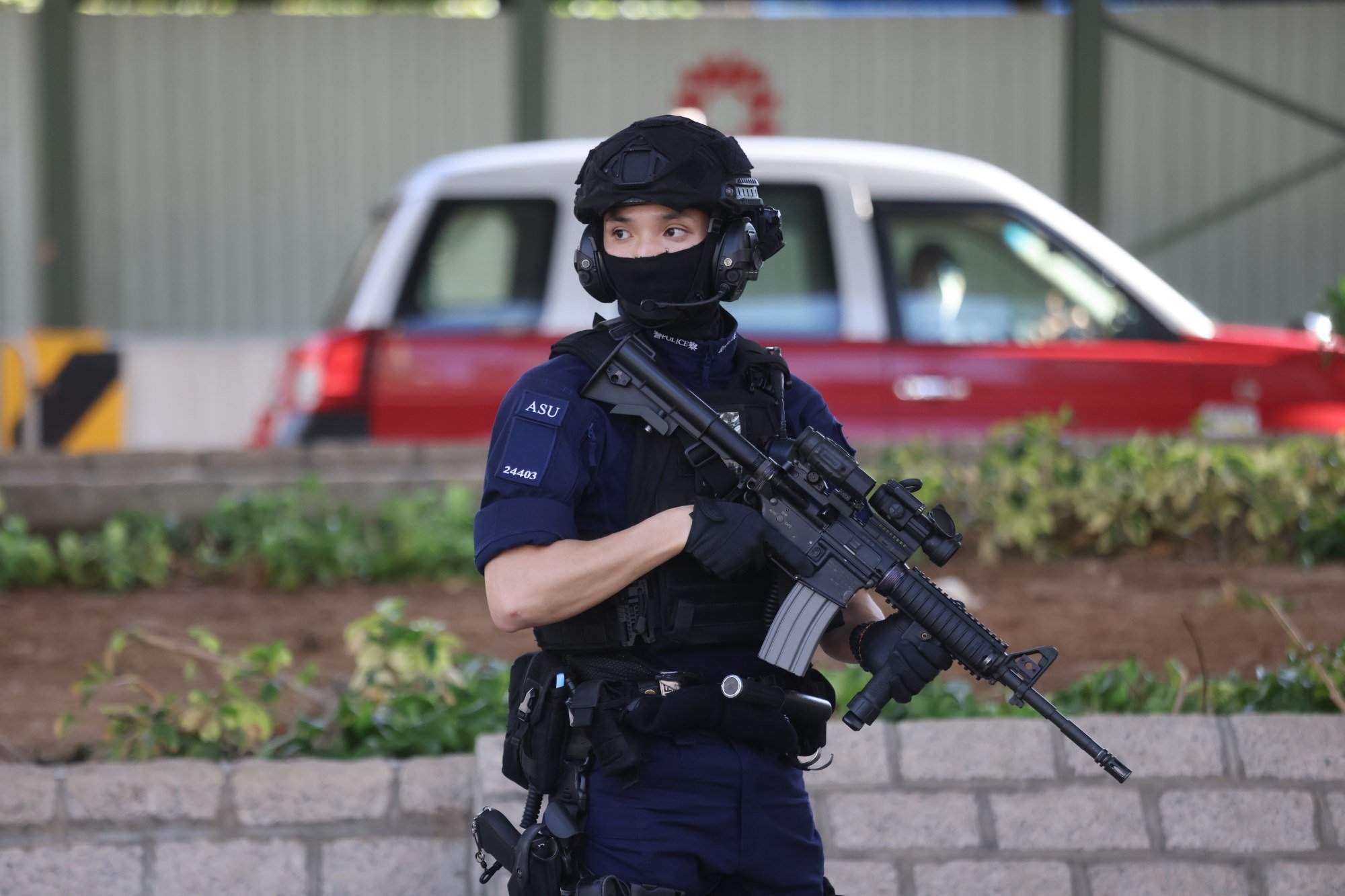
Day 56: April 9
Detained activist Andy Li Yu-hin said he had considered setting up a government-in-exile to further his push for international sanctions against Hong Kong and mainland China after the national security law came into force in June 2020.
Day 55: April 8
The court was told three overseas individuals, including UK-based financier Bill Browder, were involved in a push for Japanese sanctions against Hong Kong and mainland China after Beijing’s imposition of a national security law on the city four years ago.
Day 54: March 28
Detained activist Andy Li Yu-hin said he had lobbied Western parliamentarians to suspend extradition treaties and mutual legal assistance agreements with Hong Kong even after the Beijing-imposed national security law took effect in June 2020.
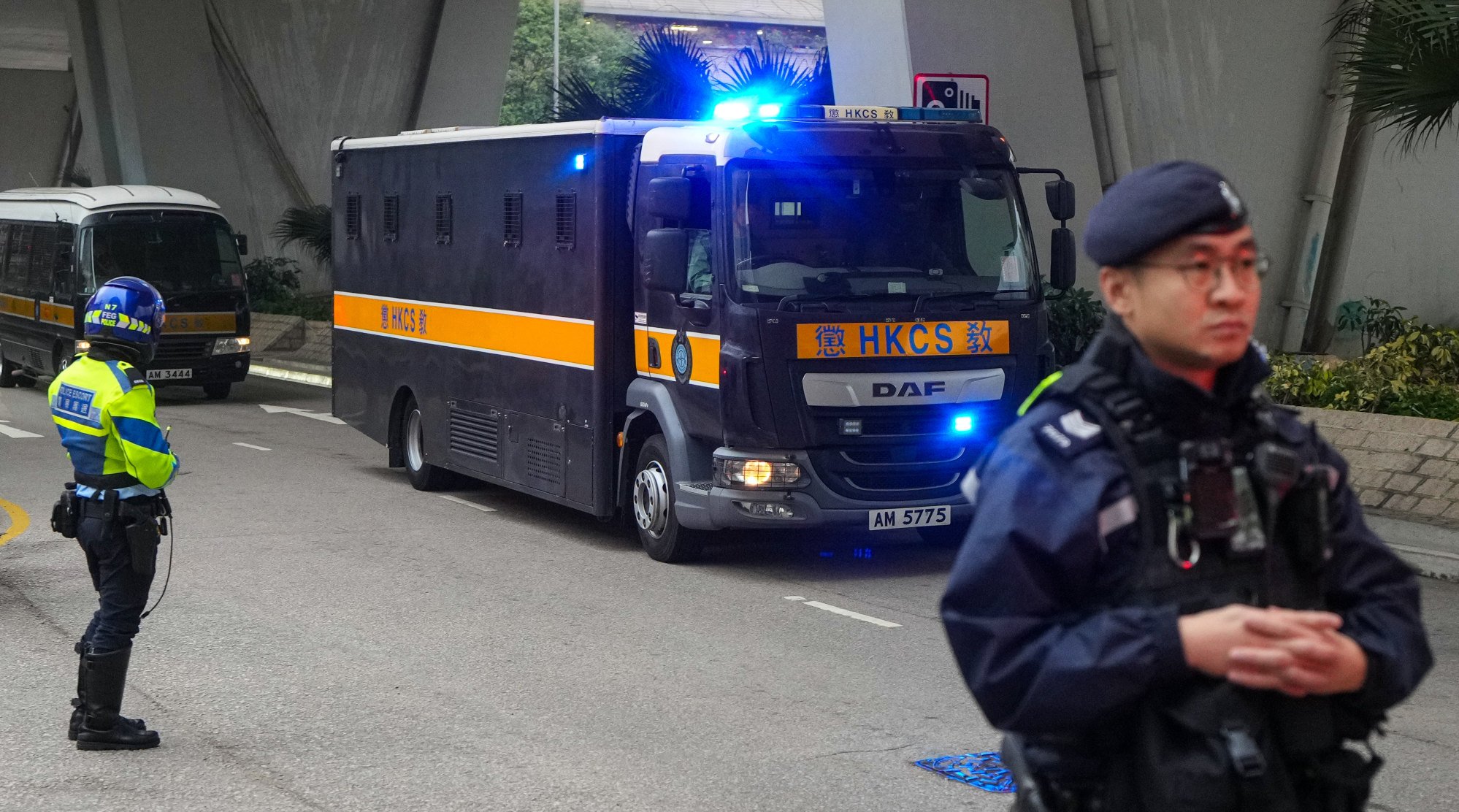
Day 53: March 27
British political activist Luke de Pulford asked Lai to provide media coverage for the founding of the Inter-Parliamentary Alliance on China and discussed with members of an international lobbying group about possible actions foreign lawmakers could take against mainland China, the trial heard.
Day 52: March 25
Opposition activist Agnes Chow Ting supported Japanese sanctions against Hong Kong for alleged human rights breaches during the city’s 2019 protests, key prosecution witness Andy Li told the court.
Day 51: March 22
An international lobbying group reportedly backed by Lai had rallied for Japanese lawmakers’ support for a bill allowing the country to sanction the Hong Kong government for alleged human rights violations during the 2019 social unrest, the trial was told.
Day 50: March 21
An international lobbying group said to be backed by Lai provided a sanctions list targeting more than 140 Hong Kong individuals in its push for the United States to hold them accountable over alleged human rights abuse, the court heard.
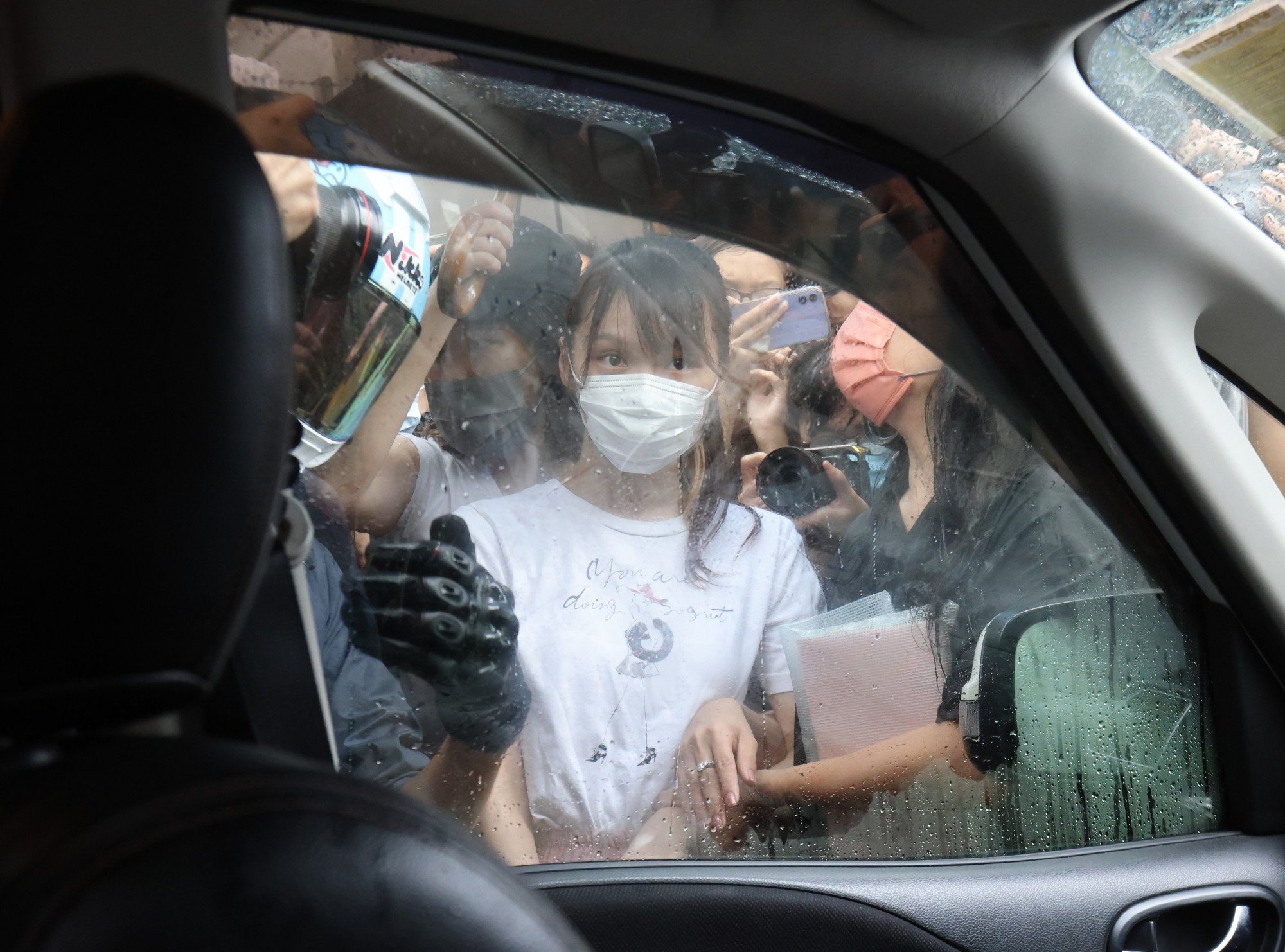
Day 49: March 20
Detained activist Andy Li Yu-hin told the court the “Fight for Freedom, Stand with Hong Kong” campaign group, which Lai was said to have supported behind the scenes, had wanted the US and the United Nations’ top human rights body to take action against mainland China in response to Hong Kong’s crackdown on the 2019 protests.
Day 48: March 19
The trial heard Lai’s right-hand man Mark Simon handled HK$14 million (US$1.8 million) in crowdfunding donations to help set up a trust fund in the United States, to support an advocacy group’s effort in instigating international actions against the Hong Kong and mainland Chinese governments.
Day 47: March 18
Detained activist Andy Li Yu-hin said an international lobbying group he was in had set up a trust fund in the United States to avoid being targeted by Hong Kong authorities and called on Britain to impose sanctions on mainland China.
Day 46: March 15
An international lobbying group led by campaigner Finn Lau Cho-dik sought UK politicians’ involvement in Hong Kong affairs in its push for British action against the city’s crackdown on protests, as well as over the Beijing-imposed national security law, detained activist Andy Li Yu-hin told the court.
Day 45: March 14
Opposition activist Agnes Chow Ting and localist party Demosisto, of which she was a standing committee member before its dissolution, were involved in an international campaign to place political advertisements in 13 countries calling for action against the Hong Kong government in 2019, the trial heard.
Day 44: March 13
Detained activist Andy Li Yu-hin started giving evidence for the prosecution, saying he was behind an international campaign to drum up support for the 2019 anti-government protests. Two companies allegedly controlled by Lai had made advance payments on Li’s behalf for the initiative, he added.
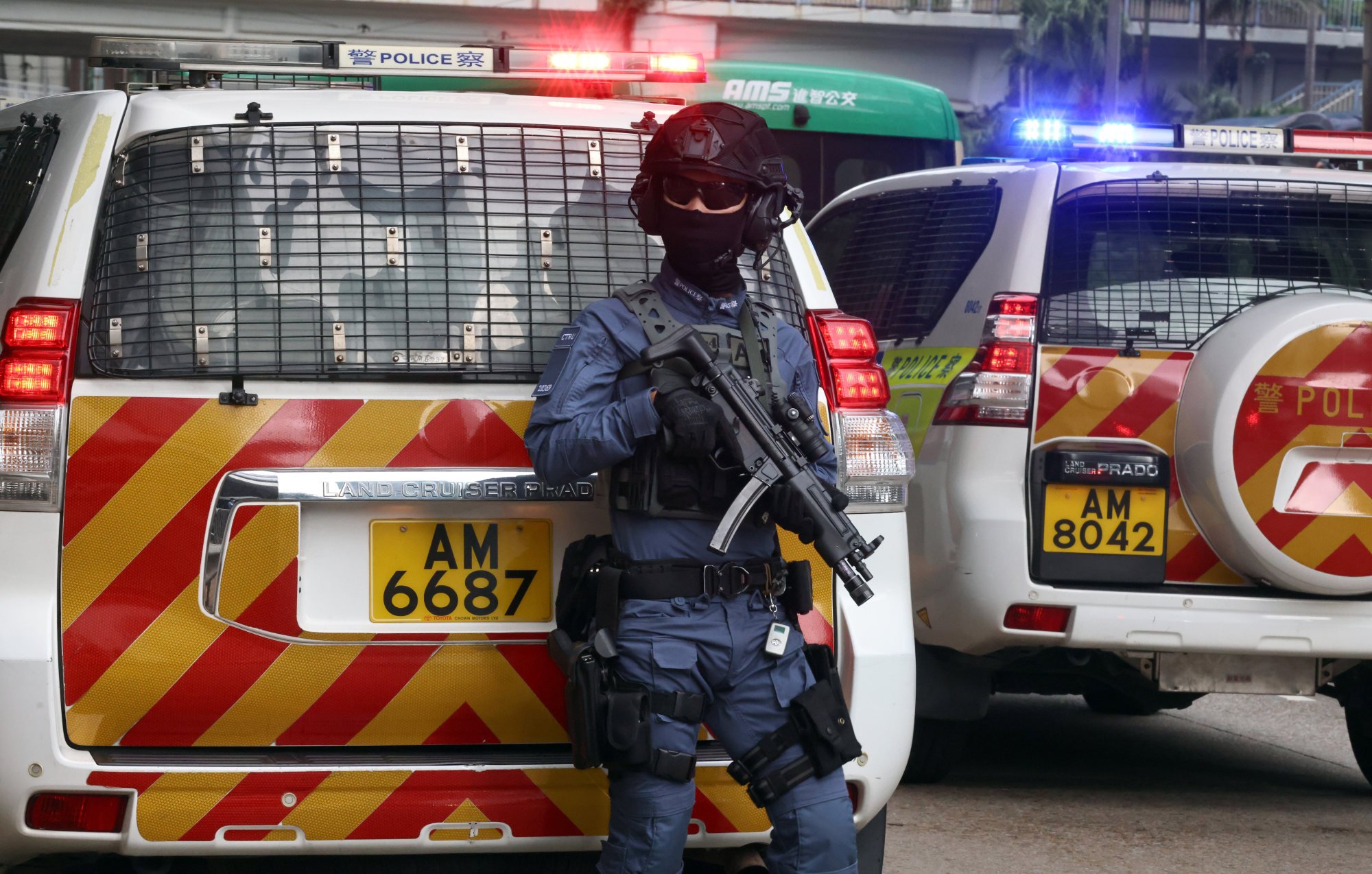
Day 43: March 12
Apple Daily published commentaries critical of the government to attract readers, Lai’s legal counsel said, but former editorial writer Yeung Ching-kee rejected the contention. He compared the tabloid’s level of editorial freedom with what he called “birdcage autonomy”.
Day 42: March 11
Lai praised the United States for taking advantage of Chinese President Xi Jinping’s “weak” administration to start what he called a “full-scale war” with the country in mid-2018, the trial heard.
Day 41: March 8
Apple Daily published a series of commentaries on US-China relations to promote international sanctions after the Hong Kong Autonomy Act was signed by then president Donald Trump, said ex-editorial writer Yeung Ching-kee, who was also asked to explain the stances of various contributors, including two former chairmen of the Democratic Party.
Day 40: March 7
Former editorial writer Yeung Ching-kee said Apple Daily continued to promote international sanctions against mainland and city officials after the national security law took effect by running articles purporting to analyse the impact of foreign governments’ actions – an editorial approach he described as “playing with the edge”.
Day 39: March 6
Apple Daily stopped running commentary articles by pro-establishment figures after its founder Lai turned “radical” in 2018, ex-editorial writer Yeung Ching-kee said, adding that the opinions expressed had to be consistent with the tycoon’s views.
Day 38: March 5
Lai provided “guiding principles” to Apple Daily staff in selecting contributors and articles through his personal column, ex-editorial writer Yeung Ching-kee said, adding the tycoon was supportive of US sanctions and believed they served to underline the country’s support for Hong Kong.
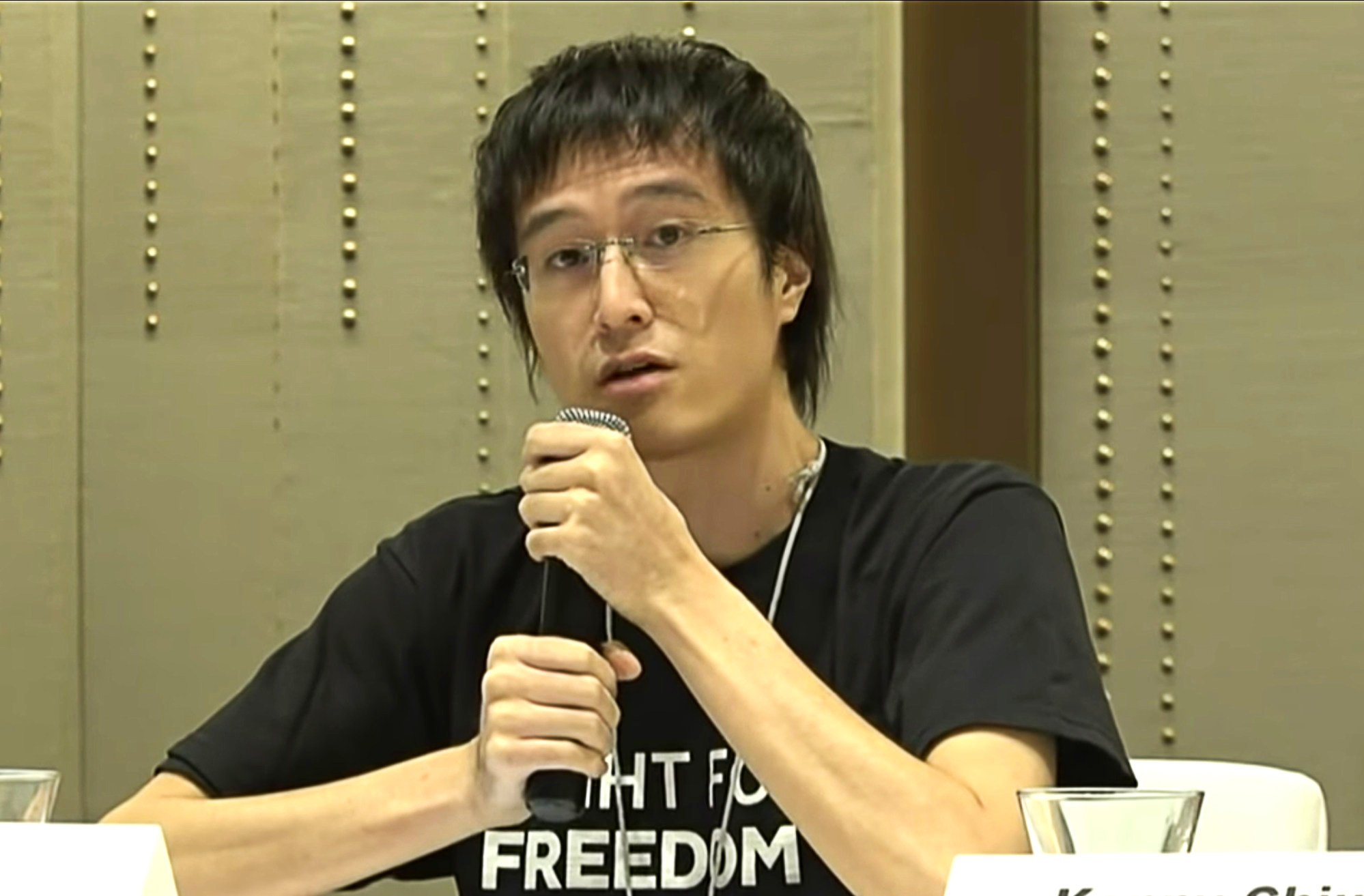
Day 37: March 4
Lai turned “radical” and changed Apple Daily’s editorial approach after the US-China trade war kicked off in 2018 under the administration of then US president Donald Trump, ex-editorial writer turned prosecution witness Yeung Ching-kee told the court.
Day 36: March 1
One of the three judges hearing the trial questioned whether purported words of encouragement from Lai could be used to support his conviction, after prosecutors alleged the mogul told Apple Daily staff to “hang in there” following his prosecution in December 2020.
Day 35: February 29
Lai had the ultimate authority on Apple Daily’s editorial matters, former associate publisher Chan Pui-man said, as she pushed back against the defence’s contention that the tycoon was only interested in how to better manage the outlet and improve the quality of its content.
Day 34: February 28
Lai’s lawyers argued the tycoon never told Apple Daily to draw up a list of city and mainland officials for the United States to sanction, saying a forwarded text message from him had been mistaken for an instruction to editorial staff.
Day 33: February 27
Apple Daily maintained its overall editorial approach after Lai was prosecuted for allegedly violating the national security law, former associate publisher Chan Pui-man said, but added the tabloid made some concessions to avoid offending the authorities.
Day 32: February 26
Prosecutors argued Apple Daily played up a report on potential US sanctions on mainland and Hong Kong officials at the behest of Lai, but ex-associate publisher Chan Pui-man defended the tabloid’s decision and said it was in line with journalistic principles.
Day 31: February 22
Lai asked Apple Daily staff whether the tabloid could prepare a list of mainland and Hong Kong officials to be sanctioned by the United States after then president Donald Trump introduced plans to penalise those said to have contributed to the erosion of the city’s autonomy, ex-associate publisher Chan Pui-man told the court.
Day 30: February 21
Apple Daily launched a letter campaign to petition former US president Donald Trump to stop Beijing from imposing the national security law on Hong Kong at the request of Lai, who snubbed objections from a senior executive and insisted it was the only way the city could be “saved”, the trial heard.
Day 29: February 20
Ex-associate publisher Chan Pui-man said Lai intended to mobilise an “international front” against mainland China by launching an English digital edition of Apple Daily to draw US support, adding the tycoon’s personal assistant, Mark Simon, had played a part in the efforts.
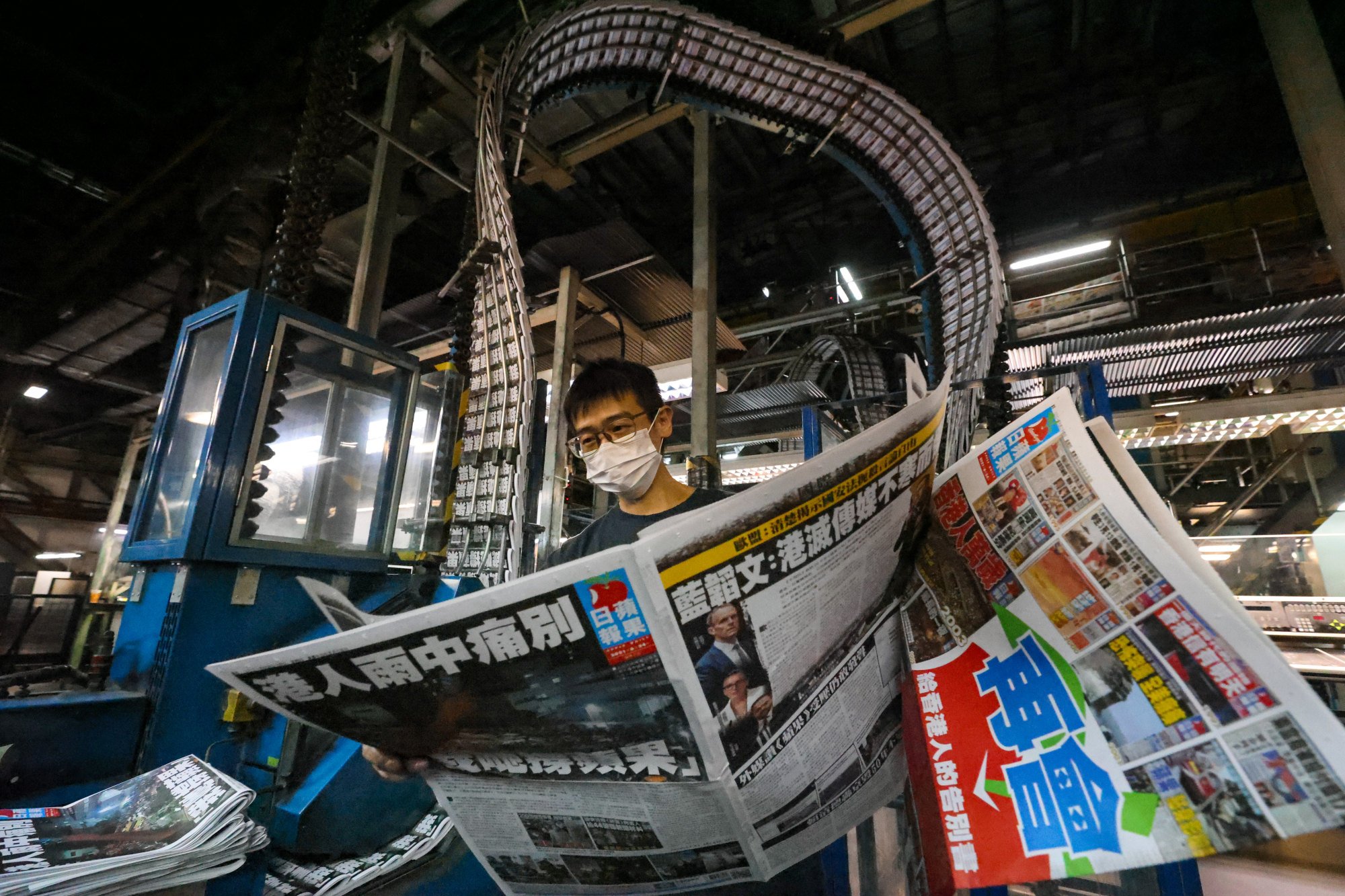
Day 28: February 19
Prosecutors alleged that Apple Daily recruited prominent political figures to boost support for Lai and Apple Daily. Veteran democrat Martin Lee Chu-ming was said to have appealed to the public for backing by criticising the “authoritarian” regime of the Chinese Communist Party.
Day 27: February 9
Ex-associate publisher Chan Pui-man said Lai’s appeal to residents to stand against “totalitarianism” said to be embodied by the Hong Kong government prompted the tabloid to play up news about Beijing’s alleged concealment of information in the first wave of Covid-19 infections in early 2020.
Day 26: February 8
Prosecutors accused Apple Daily of publishing a photobook titled Freedom 2019 Summer that carried the slogan “punish killers with voters” ahead of the district council election that year. The court heard that some copies sold for HK$10 each, with the proceeds going to the now-defunct 612 Humanitarian Relief Fund, which offered financial help to anti-government protesters in need of legal services.
Day 25: February 7
Ex-associate publisher Chan Pui-man said Lai asked colleagues to proliferate sentiments sympathising with the storming of the Legco complex by demonstrators in 2019, prompting them to cover the anti-government movement with the “intention” to drum up support for the protests.
Day 24: February 6
Lai texted former associate publisher Chan Pui-man before the city’s first protest against an extradition bill in April 2019 and asked her to come up with ways to boost the turnout, a court was told. The tabloid published a double-page cartoon that portrayed the legislation as an “evil law” and carried advertisements that opposed the passage of the amendment.
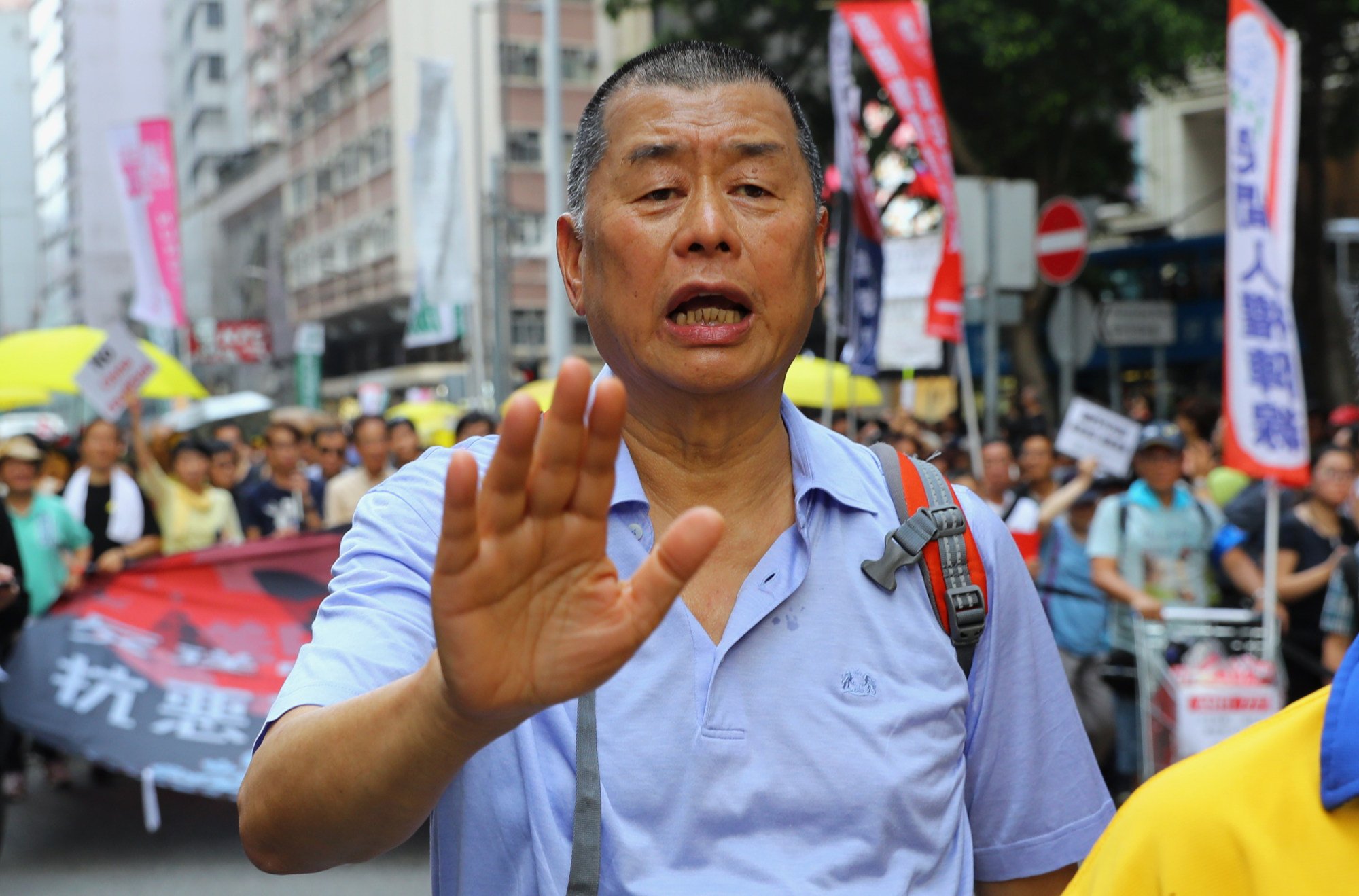
Day 23: February 5
Former associate publisher Chan Pui-man said she was instructed by Lai to help British-based group Hong Kong Watch when it was established in 2017, and Apple Daily later described its co-founder Benedict Rogers as “Man of the year” for that year in a news report.
Day 22: February 2
Ex-publisher Cheung Kim-hung said Apple Daily ran a series of news reports under the heading “End of the two systems” to reflect Lai’s views on the impact the security law had on the city, while his former subordinate Chan Pui-man, who worked at the tabloid for 25 years, began to testify against the founder.
Day 21: February 1
Cheung Kim-hung denied being persuaded by police to testify against his former boss, and said he acted on Jimmy Lai’s instructions to run Apple Daily after the national security law took effect until the tabloid folded.
Day 20: January 31
Cheung Kim-hung denied tailoring his evidence to corroborate the prosecution’s case that Lai had instructed Apple Daily staff to publish seditious articles and trigger international sanctions against mainland China, but the defendant turned prosecution witness agreed that the paper exercised caution in its reporting after the national security law came into force.
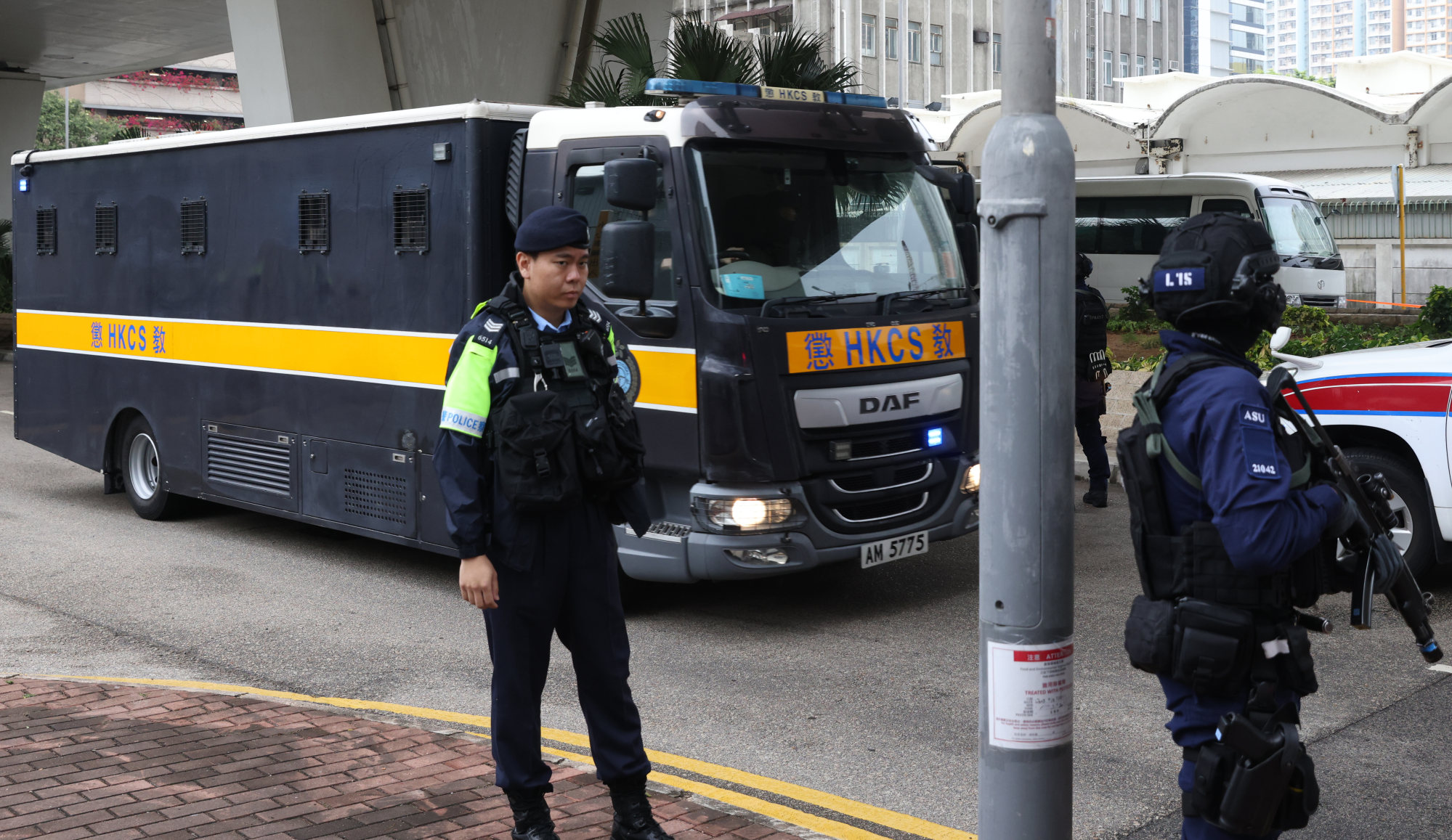
Day 19: January 30
Lai’s counsel argued the tycoon’s letter campaign to petition former US president Donald Trump was intended to trigger the American government’s “diplomatic efforts”, but ex-publisher Cheung Kim-hung disagreed and maintained the tycoon intended to attract sanctions against mainland China for imposing the national security law on Hong Kong.
Day 18: January 29
Lai’s legal team sought to downplay the tycoon’s role in Apple Daily’s editorial decisions and highlight the input of senior executives as they began cross-examining the evidence of ex-publisher Cheung Kim-hung, but the defendant turned prosecution witness rejected their contention and insisted he and his colleagues had “no choice” but to oblige.
Day 17: January 26
Lai told Apple Daily to tone down criticism of Donald Trump in its coverage of the 2020 United States presidential election, said ex-publisher Cheung Kim-hung, who also revealed the reasons for the tycoon’s insistence to conduct a live broadcast interview with a former US army general after the national security law took effect in Hong Kong.
Day 16: January 25
Lai remained in “great fighting spirit” after he was remanded in custody in December 2020, according to ex-Apple Daily publisher Cheung Kim-hung, who said the tycoon had instructed the newspaper to continue its “pro-resistance” approach and focus its English-language coverage on mainland China so as to “influence international discourse”.
Day 15: January 24
Prosecutors turned their focus towards Apple Daily’s English edition, which ex-publisher Cheung Kim-hung said was intended by Lai to fuel anti-China sentiments in the United States and instigate sanctions and other hostile acts towards Beijing.
Day 14: January 23
Cheung Kim-hung said Lai had instructed Apple Daily staff to show support for radical protesters during the 2019 anti-government unrest and launch a campaign to encourage readers to seek then US president Donald Trump’s intervention in Beijing’s imposition of the national security law on Hong Kong.
Day 13: January 19
Lai radicalised Apple Daily after a high-level meeting with top United States officials in July 2019, former publisher Cheung Kim-hung said. He added the tycoon had instructed the newspaper’s senior editorial staff to give in-depth coverage of a bookseller who left for Taiwan after claiming he had been abducted by mainland Chinese authorities, as well as former Hong Kong governor Chris Patten’s views on that year’s extradition bill.
Day 12: January 18
Former Apple Daily publisher Cheung Kim-hung testified the launch of Apple Daily’s English edition in May 2020 was in line with Lai’s instruction to expand US readership. A series of live videos that showed Lai in discussion with overseas academics and politicians was intended to develop the narrative of Beijing’s “oppression” of Hong Kong after the national security law took effect, Cheung told the court.
Day 11: January 17
Ex-publisher Cheung Kim-hung started giving evidence for the prosecution, saying Lai – the newspaper’s “helmsman”, “top leader” and “ultimate decision-maker” – had asked editorial staff to promote resistance against authorities and seek foreign interventions in the city’s 2019 anti-government protests.
Day 10: January 16
The court overruled Lai’s objection to the prosecution’s submission of a university professor’s opinion on US sanctions. Without making specific references, the bench also criticised foreign countries’ lack of respect for Hong Kong’s rule of law in seeking to influence the city’s internal affairs.
Day 9: January 10
The prosecution read out a police financial investigation report and revealed Lai, either directly or indirectly through his right-hand man Mark Simon and companies under their control, had transferred large sums to Hong Kong and US political entities, including a former senior United States official, an American think tank and various opposition parties.
Day 8: January 9
The prosecution and defence discussed the trial’s schedule, including when to call the case’s key witnesses to the stand, after Lai’s lead counsel took a two-week leave of absence for personal reasons. The prosecution also read out a statement from an information security academic about the features and operations of a variety of social media platforms.
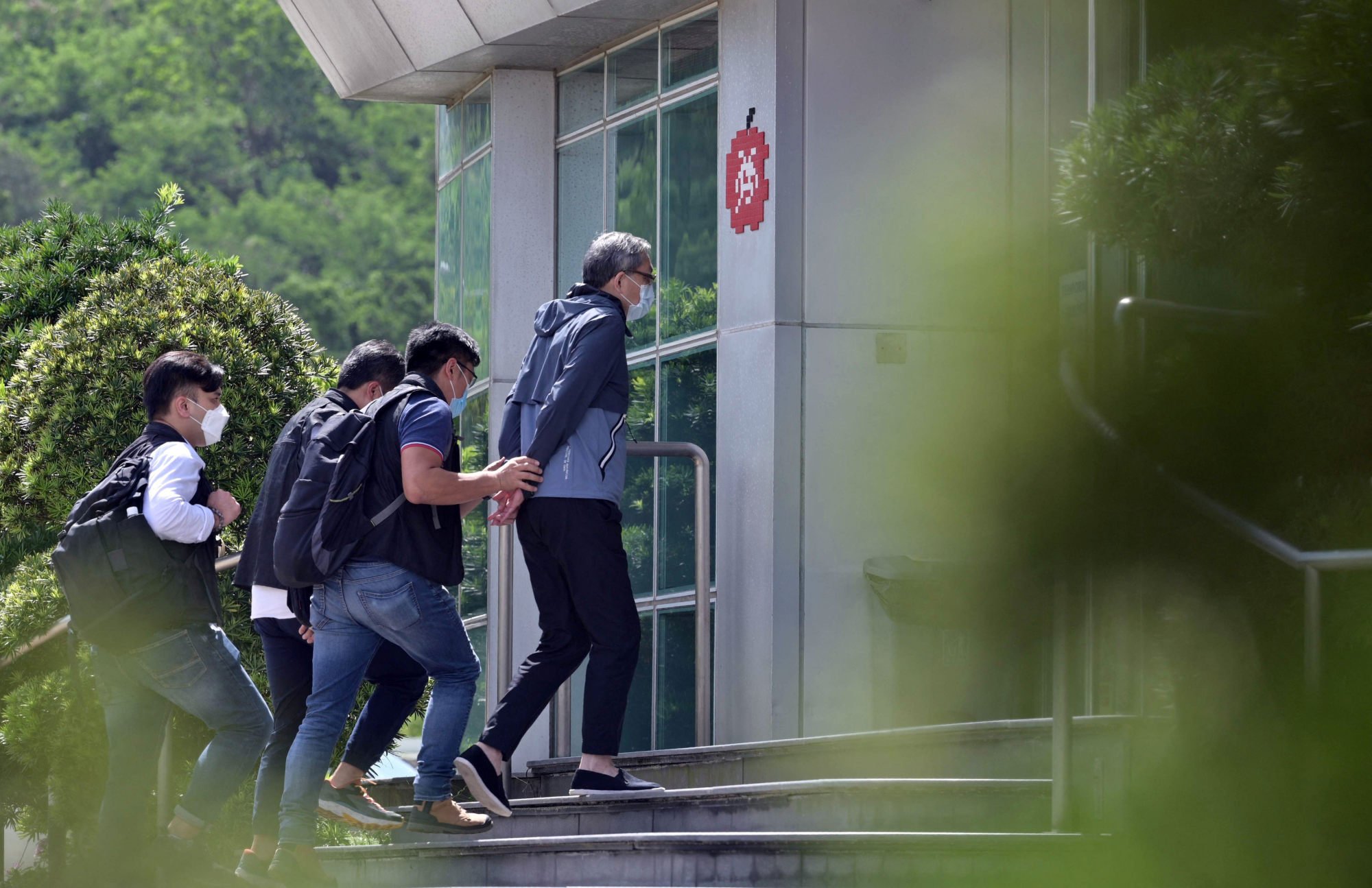
Day 7: January 8
The prosecution read out a set of undisputed facts and revealed national security police had earlier obtained a court order forcing Japanese newspaper Nikkei’s Hong Kong office to explain its dealings with activist Agnes Chow Ting and another regarding a political advertisement in August 2019.
Day 6: January 4
The prosecution wrapped up its three-day opening statement after outlining details of how Lai allegedly orchestrated an anti-China campaign titled “Fight for Freedom, Stand with Hong Kong” in 2019 by paying more than HK$8.9 million (US$1.14 million) to support the publication of propaganda and related articles in overseas media.
Day 5: January 3
The prosecution’s opening statement continued for the second day, with a focus on Lai’s allegedly seditious remarks made in a series of commentaries and media interviews, as well as instructions he was said to have given Apple Daily staff and associates to use the newspaper to try to bring international sanctions against Beijing.
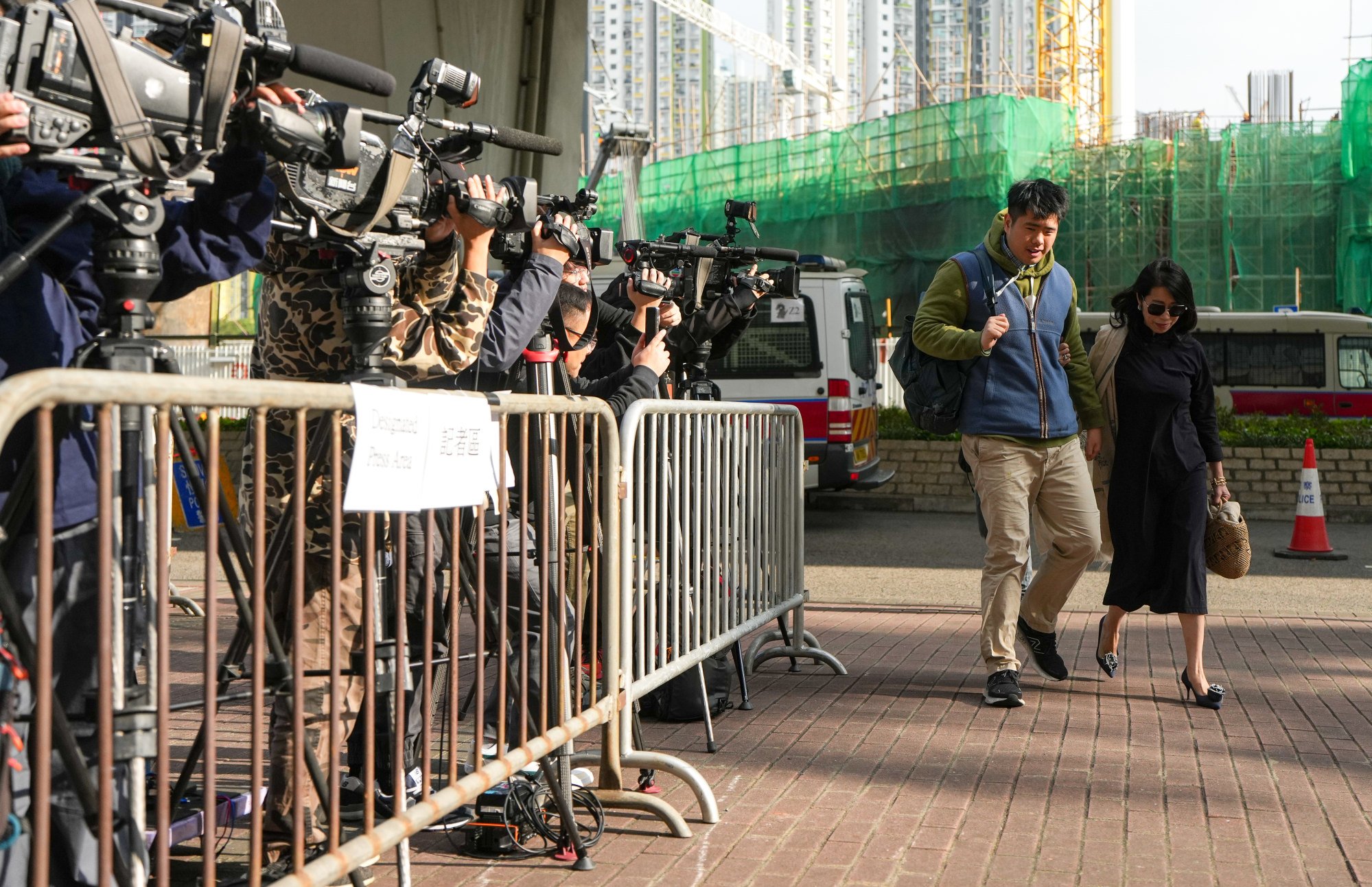
Day 4: January 2, 2024
The prosecution made its opening arguments after Lai pleaded not guilty to the three charges. Prosecutors told the court that the tycoon was a “radical political figure” who had capitalised on the social unrest in 2019 to pursue his “criminal” agenda.
They also accused him of helping to instigate hostile actions by at least eight foreign powers against Beijing and Hong Kong authorities.
Day 3: December 22
The three judges presiding over the trial dismissed an application from the tycoon’s legal team to drop the sedition charge. The court ruled that prosecutors had not violated the Criminal Procedure Ordinance in laying the charge against Lai.
They also dismissed a defence contention that the charge was filed too late.
Day 2: December 19
The court adjourned to make a ruling on whether to drop the sedition charge against Lai. Prosecutors insisted they had not acted too late since the alleged conspiracy involved an ongoing incident.
Day 1: December 18, 2023
Lai’s legal team submitted verbal arguments to support their application to have the sedition charge against the tycoon dismissed. The defence insisted that the prosecution had passed the statutory six-month time limit, as stipulated in the Crimes Ordinance, when the charge was laid.


